We’re excited to introduce you to the always interesting and insightful Libby Osborne. We hope you’ll enjoy our conversation with Libby below.
Hi Libby, thanks for joining us today. Can you talk to us about how you learned to do what you do?
My love for art started very young. I was very lucky to have parents who encouraged creativity and a mother who spent a lot of time teaching me how to draw and paint. From there I have been mostly self taught until I got my apprenticeship in 2015. I feel really lucky to have been taken on by at that point by Om Ink Gallery, a shop full of incredible and diverse artists. I do my best to pick up skills and techniques anywhere I can, from picking the brains of other artists to observing the natural world, anything and everything is my teacher.
It’s hard to say what I could have done to speed up my learning process. I think in a lot of ways I am a slow and steady kind of artist. I find that my whole process has been precise and intentional. It took me 6 years from the time I decided I wanted to tattoo to actually find an apprenticeship that was a good fit. In that time I spent a lot of time improving my artistic skills and growing as a person. I don’t believe at the beginning of that 6 year process I was emotionally or artistically ready to be a tattooer. On the whole I believe things happen when they need to, whether it’s learning a skill, or being given an opportunity.
Being a tattooer requires a myriad of important skills. Foremost I think you have to be resilient and true to yourself. Knowing who you are provides you the ability to see the areas in which you can improve the most on and the things you are good at. Having the dedication to work hard and stay inspired is the best catalyst for growth.
With that self knowing comes a lot of hurdles as well. In some ways I think my insistence on being myself made finding my place in the industry more difficult. At the beginning of my career I found it really difficult to find a shop that felt like home with the right environment for what I was striving for, and at that time, I wasn’t even sure what that was. I am an introvert by nature and it has prevented me from having the courage to spend time traveling and working with artists that I would like to. I struggle a lot with imposter syndrome as well. There are so many incredible artists out there and I am working on being more comfortable being in situations where I can meet and learn from more people.


Libby, love having you share your insights with us. Before we ask you more questions, maybe you can take a moment to introduce yourself to our readers who might have missed our earlier conversations?
My name is Libby, I am a 35 year old queer, Jewish, east coast transplant. I usually dislike labels, so it’s weird to try to describe myself distinctly. Other than tattooing I am extremely passionate about nature, sustainability and spirituality. Basically, if you want to talk about the magic and the weird in nature and art, I’m your girl.
I am coming up on my 7th year in tattooing. I cover a pretty wide variety of styles in my work. I enjoy being able to explore different techniques and I think it helps to make me a more well rounded artist to take on multiple styles, it keeps me interested. I do have my favorites though. Moving forward with my career would like to focus more on full color pieces that are nature related, fantasy, sci-fi, or trippy.
More important that subject matter is my relationship with my clients. I feel a strong calling to the bring focus to the importance of the trust and energy exchange that happens between the tattooer and client. I recognize that every time someone comes to me with an idea we have to trust each other and work together to create an image that has pieces of both of us. I do not take for granted that tattooing is painful, and people are trusting me to put them through that pain, and come out changed, even if it’s just aesthetically. I view my role as a guide through the whole process. I am a catalyst for ideas, for pain, for conversation, and for transformation. In some ways this sounds super serious, some days it’s really serious introspective work, I learn from my clients, and they learn from me, we have really crazy deep conversations. Some days it’s all fun and laugh and jokes, and those days are just as important. Each experience has its place and are just as powerful.
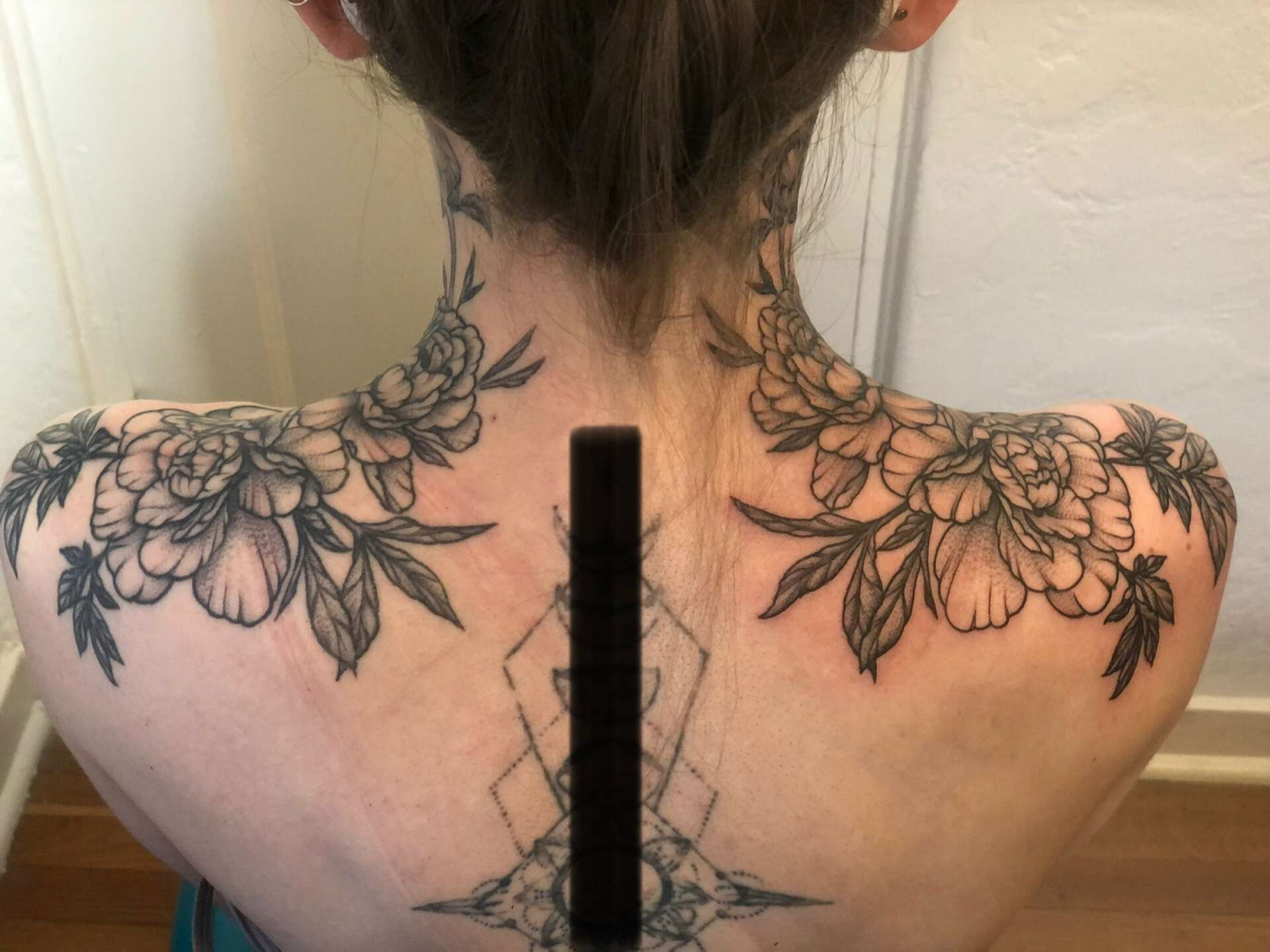
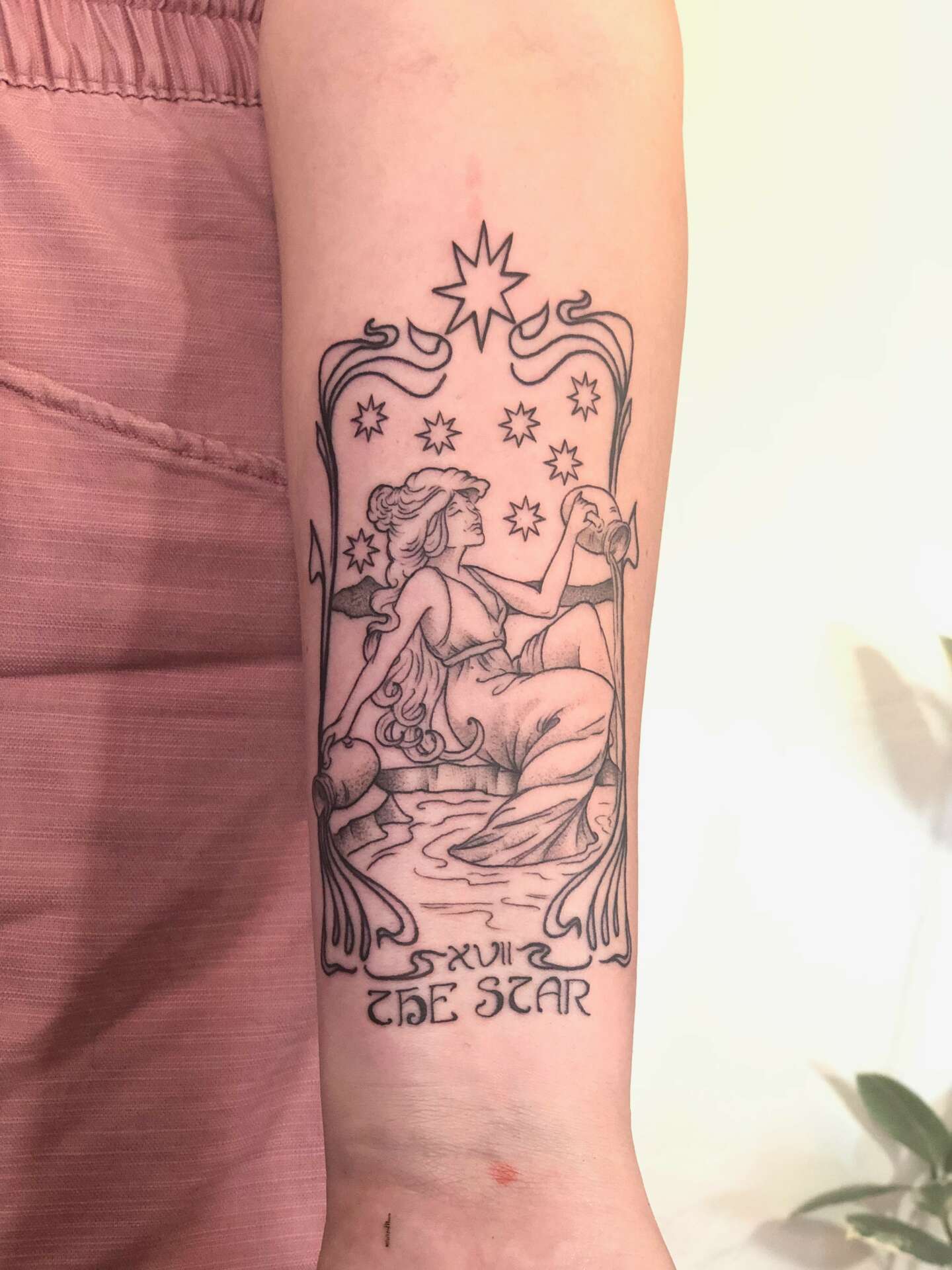
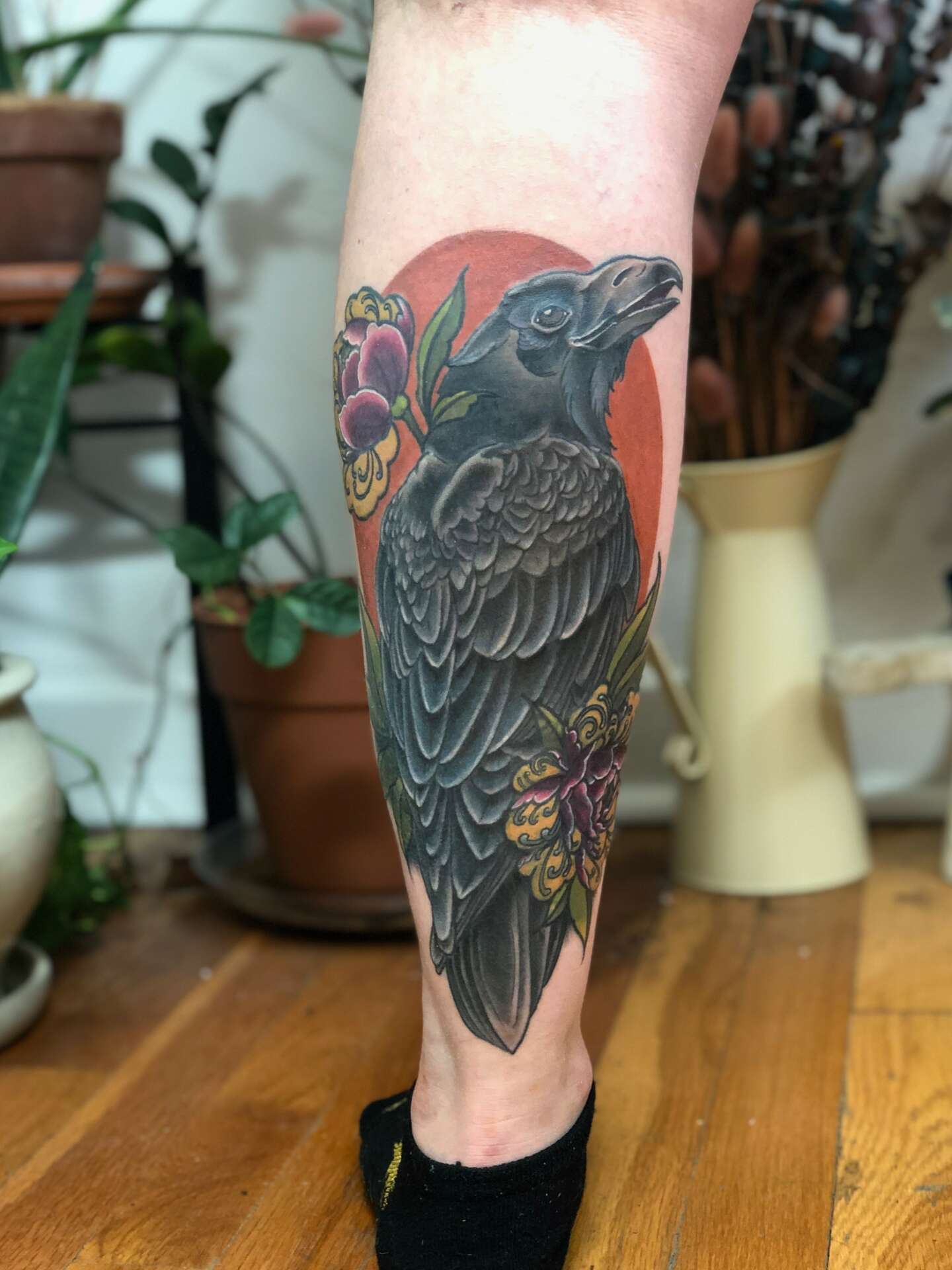
How about pivoting – can you share the story of a time you’ve had to pivot?
Early on in my career I took a position at a really beautiful, well known shop. It was everything I thought I had been working for. I was surrounded by other talented artists, the space was gorgeous, and I was always busy. Throughout my time there, even though it was a great shop, I became more and more aware that it wasn’t a good fit for me and decided to move on. I realized I wanted a slower paced work environment that allowed me to put my all into each and every drawing that I did. I was able to find like minded artists, like my business parter Lisa, and my co-worker Rudy, who had similar, if not exact perspectives on how we wanted our careers to go. We created a space together that allows us to work with clients we fit best with, projects that we feel the most drawn to, and at a pace that works for us as individuals.
I think my biggest take away from the whole experience is that you should never be afraid to try something even if you don’t stick to it. If you want something, go for, but it’s also ok to admit it’s not what you hoped it would be, and move on to something else.
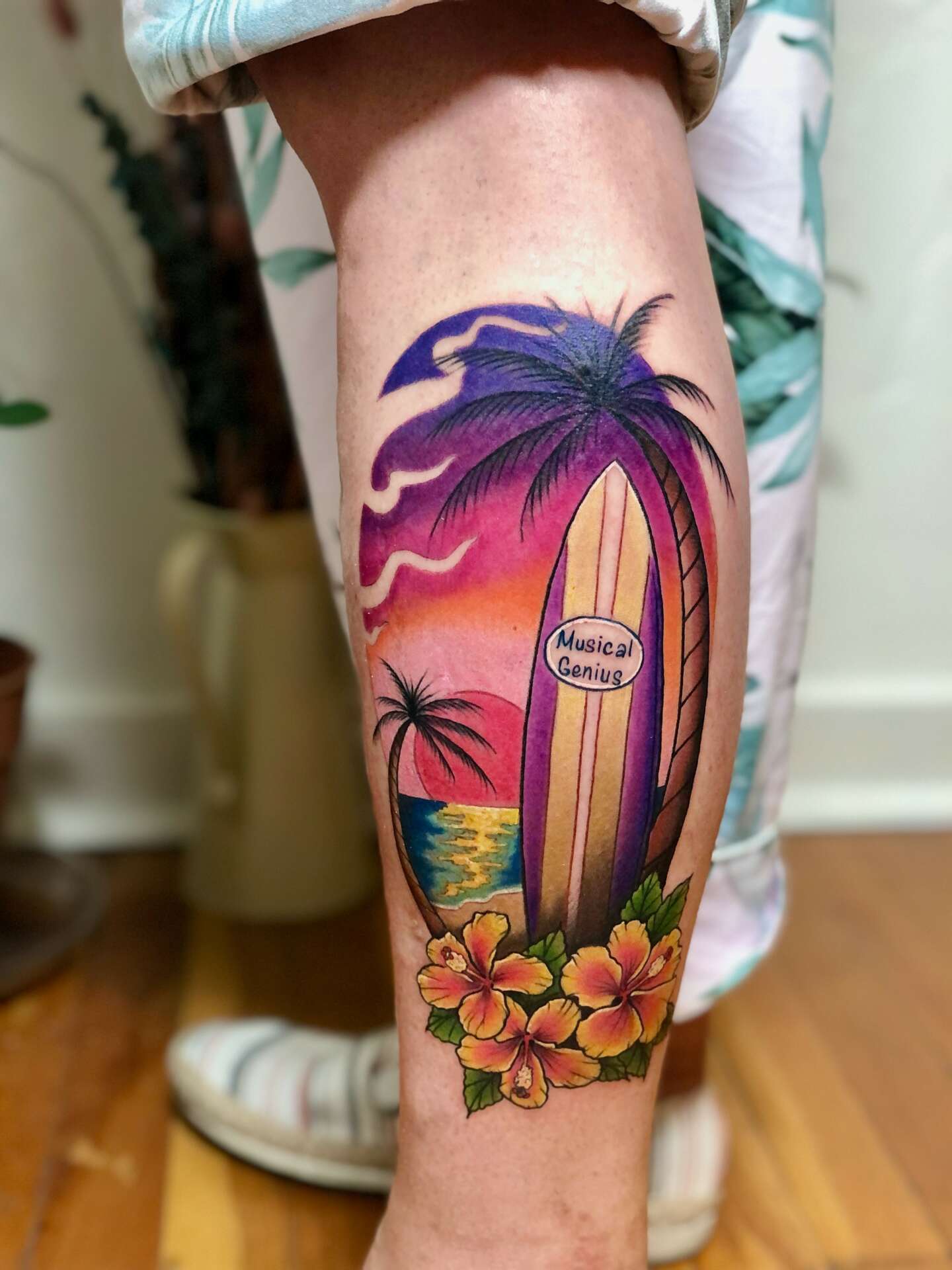
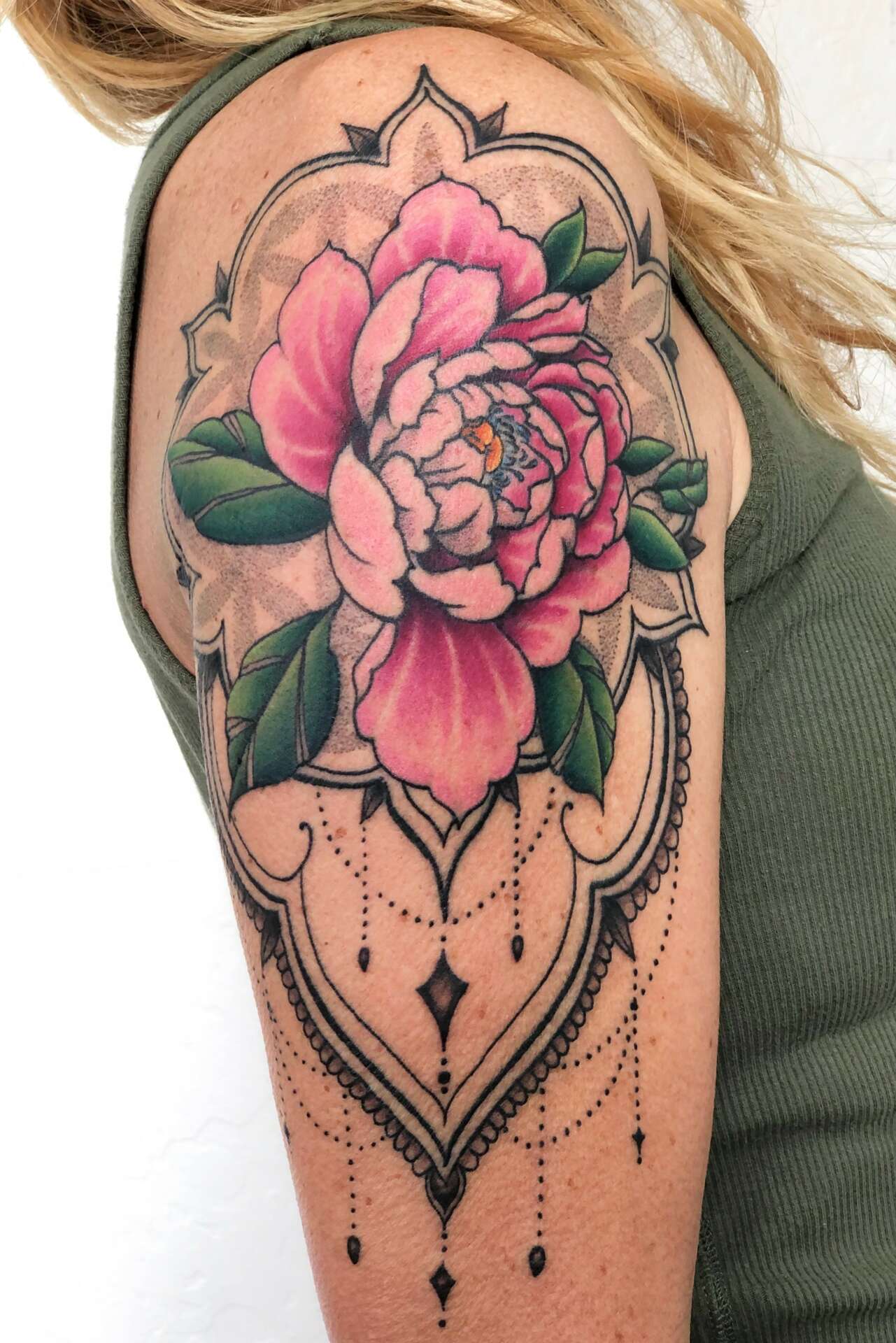
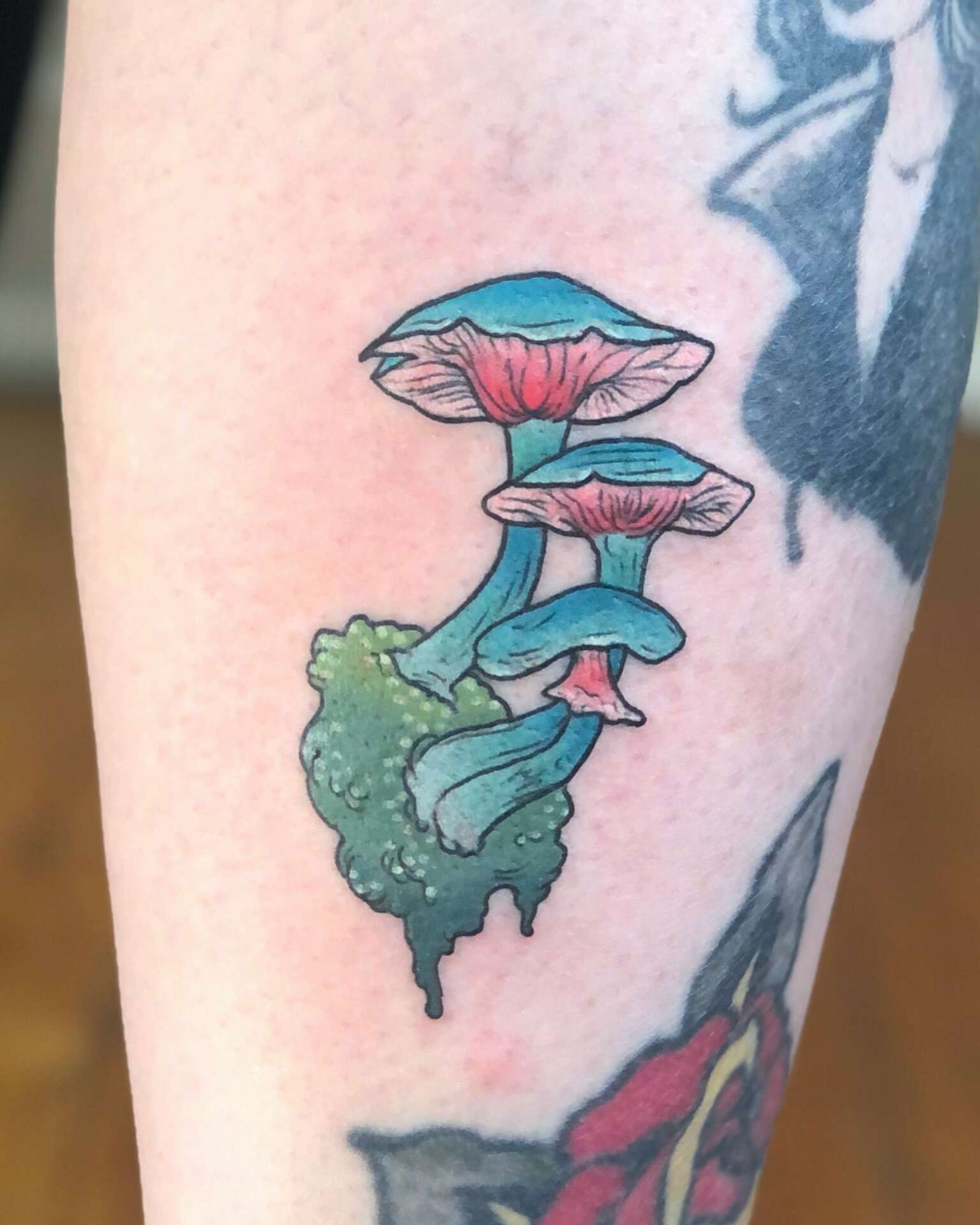
Do you think there is something that non-creatives might struggle to understand about your journey as a creative? Maybe you can shed some light?
It’s really hard to be a creative/artist in a culture that focused on immediate gratification and productivity. My personal creative process is slow, and deliberate. I can’t grind out a ton of work in a short amount of time, and I think thats ok. However I do spend a lot of my personal time creating, for work and otherwise. When I take on a project I don’t draw it 5 minutes before the appointment, and while I know some artists do and are great at it, it’s not the way my brain works. Every artist has their own method and creative process, just because you see one person doing something a specific way or having a specific time line, doesn’t mean we all work on that same schedule. I hope people know that there is no bar to meet when it comes to productivity, especially as an artist.
Contact Info:
- Website: https://libberosis.square.site
- Instagram: libberosis
- Facebook: https://www.facebook.com/libberosis
- Other: shop website: www.solacetattoophx.com email: [email protected]


